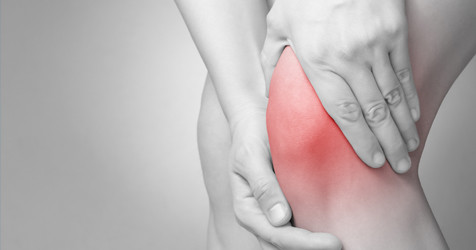Arthritis is a common condition that causes pain and inflammation in a joint.
WHAT ARE THE TYPES OF ARTHRITIS ?
The two most common types of arthritis are:
- Osteoarthritis: Osteoarthritis is the most common type of arthritis. It most often develops in adults who are in their late 40s or older. It's also more common in women and people with a family history of the condition. Osteoarthritis initially affects the smooth cartilage lining of the joint. This makes movement more difficult than usual, leading to pain and stiffness. Once the cartilage lining starts to roughen and thin out, the tendons and ligaments have to work harder. This can cause swelling and the formation of bony spurs, called osteophytes.
- Rheumatoid Arthritis: It often starts when a person is between 40 and 50 years old. Women are three times more likely to be affected than men are. Rheumatoid arthritis occurs when the body's immune system targets affected joints, which leads to pain and swelling. The outer covering (synovium) of the joint is the first place affected. This can then spread across the joint, leading to further swelling and a change in the joint's shape. This may cause the bone and cartilage to break down.
Other types of arthritis and related conditions :
- Ankylosing Spondylitis: A long-term inflammatory condition that mainly affects the bones, muscles, and ligaments of the spine, leading to stiffness and joints fusing together. Other problems can include the swelling of tendons, eyes, and large joints.
- Cervical Spondylosis: Also known as degenerative osteoarthritis, cervical spondylitis affects the joints and bones in the neck, which can lead to pain and stiffness.
- Fibromyalgia: Causes pain in the body's muscles, ligaments, and tendons.
- Lupus:Lupus:lupus:toimmune condition that can affect many different organs and the body's tissues.
- Gout: A type of arthritis caused by too much uric acid in the body. This can be left in joints (usually affecting the big toe) but can develop in any joint. It causes intense pain, redness, and swelling.
- Psoriatic Arthritis: An inflammatory joint condition that can affect people with psoriasis.
- Enteropathic Arthritis: A form of chronic, inflammatory arthritis associated with inflammatory bowel disease (IBD), the two best-known types being ulcerative colitis and Crohn's disease.
- Reactive Arthritis: This can cause inflammation of the joints, eyes, and urethra (the tube that urine passes through). It develops shortly after an infection of the bowel, genital tract or, less frequently, after a throat infection.
- Secondary Arthritis: A type of arthritis that can develop after a joint injury and sometimes occurs many years afterward.
- Polymyalgia Rheumatica: A condition where the immune system causes muscle pain and stiffness. It can also cause joint inflammation.
WHAT ARE THE SYMPTOMS OF ARTHRITIS?
The symptoms of arthritis you experience will vary depending on the type you have. These may include :
- Joint pain, tenderness, and stiffness
- Inflammation in and around the joints
- Restricted movement of the joints
- Warm, red skin over the affected joint
- Weakness and muscle wasting
HOW TO TREAT ARTHRITIS?
There's no cure for arthritis, but there are many treatments that can help slow down the condition.
For osteoarthritis, medications are often prescribed, including :
- Painkillers
- Non-steroidal anti-inflammatory drugs (NSAIDs)
- Corticosteroids
In severe cases, the following surgical procedures may be recommended :
- Arthroplasty (joint replacement)
- Arthrodesis (joint fusion)
- Osteotomy (where a bone is cut and re-aligned)
Treatment for rheumatoid arthritis aims to slow down the condition's progress and minimize joint inflammation or swelling. Recommended treatments include :
- Analgesics (painkillers)
- Disease-modifying anti-rheumatic drugs (DMARDs) – a combination of treatments is often recommended
- Physiotherapy
- Regular exercise
Footer Loading...

